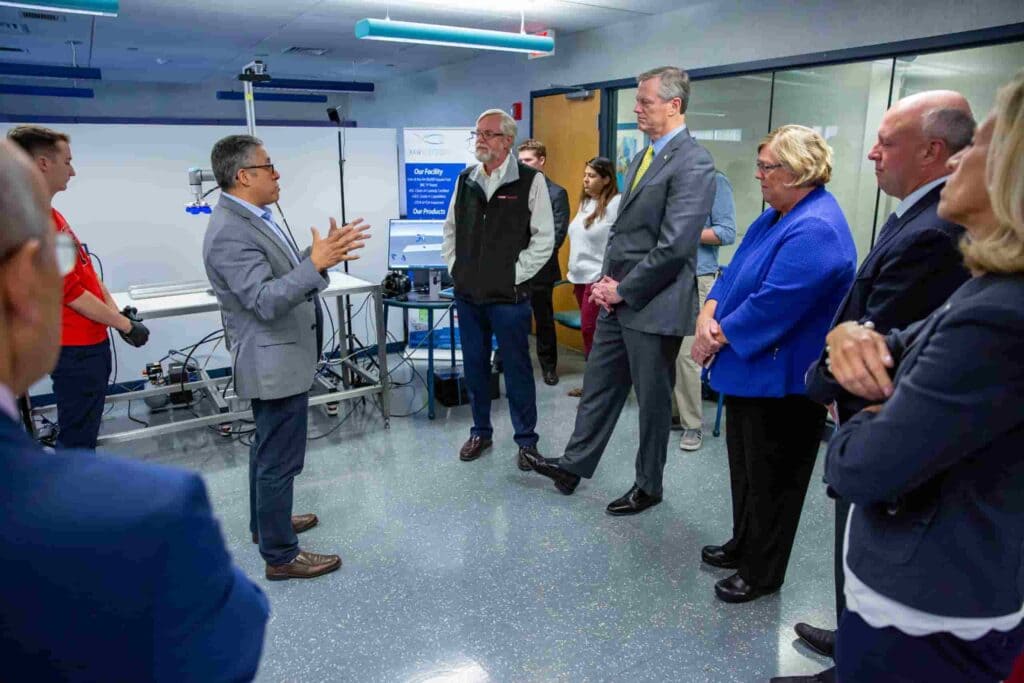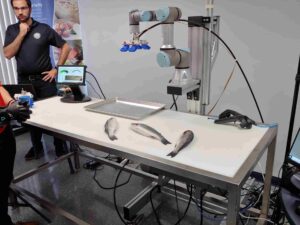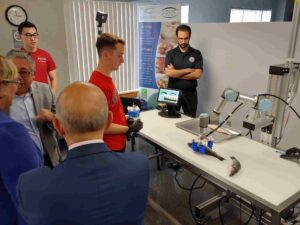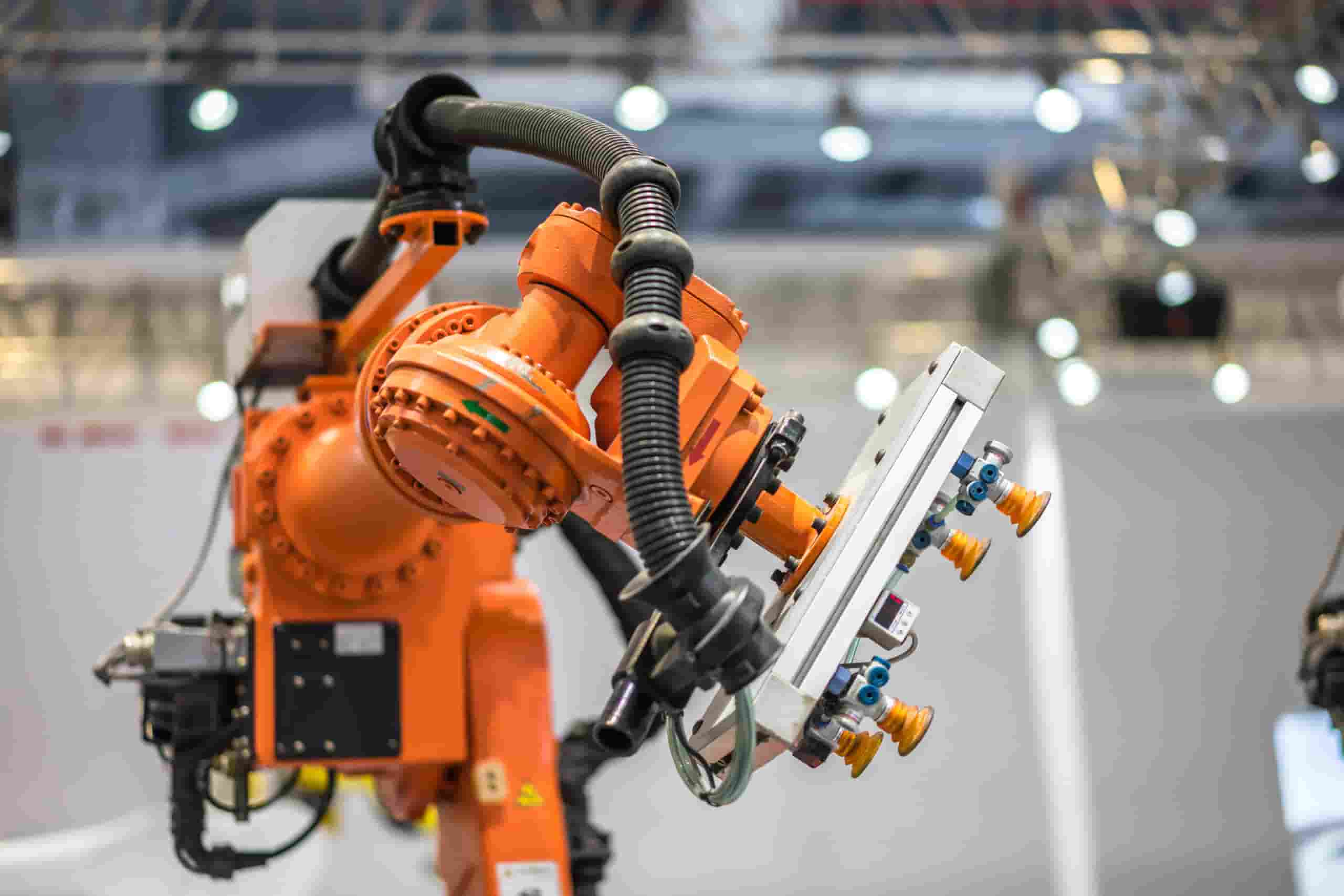
Project Participants
The following were participants in the Collaborative Robotics Innovation in Seafood Handling (FISH) Project: Northeastern University (Principal Investigator), Ascend Robotics, Harmonic Drive, MassRobotics.
The FISH Project was awarded ARM Institute funding through the organization’s first formal Technology Project Call that took place in October 2017.
Problem Statement
 The Collaborative Robotics Innovation in Seafood Handling (FISH) Project directly addresses major technology and workforce gaps in the US fishing industry. Current processes see the fish being caught domestically then shipped abroad to be thawed, processed, and chemically treated before being returned for distribution. This process is costly, time-consuming, and leads to a higher risk of contamination.
The Collaborative Robotics Innovation in Seafood Handling (FISH) Project directly addresses major technology and workforce gaps in the US fishing industry. Current processes see the fish being caught domestically then shipped abroad to be thawed, processed, and chemically treated before being returned for distribution. This process is costly, time-consuming, and leads to a higher risk of contamination.
Additionally, with supply chains facing severe disruption due to the COVID-19 pandemic, there is a renewed interest in strengthening fast, safe, and domestic food sources. Current working conditions in the fishing industry and other similar industries also have workers operating in close proximity in constrained environments. Accelerating the adoption of robotics in such industries can increase safety for workers and consumers alike.
The Approach
 Due to a workforce shortage, the US imported record amounts of seafood in 2017. The anticipated results from the project will aid in supplementing and assisting the existing workforce to better serve the demand.
Due to a workforce shortage, the US imported record amounts of seafood in 2017. The anticipated results from the project will aid in supplementing and assisting the existing workforce to better serve the demand.
Benefits
According to Dr. Taskin Padir from Northeastern University, the project’s principal investigator, advancement of robotic technologies in-line with the FISH Project could amount to $20B in economic impact each year within the next 5-10 years. The developed technology also has possible future applications in the meat, plastics, and textile industries.
The project’s potential impact also extends into defense applications. The technical innovations may provide dual-use capabilities in such critical applications as explosive ordinance inspection/handlingand logistics/resupply for the Department of Defense.
Next Steps
Since being funded by ARM, the FISH project has received two additional grants from the National Science Foundation (NSF). Most recently, Dr. Padir’s team received a NSF grant to collect ephemeral data to study the adoption of new technology in the seafood industry while considering COVID-19’s impact on worker and food safety concerns. The research team will access the demand for and feasibility of adopting human-collaborative systems to process and package food more safely and efficiently at all stages of production. The results will also help to inform systems in agriculture and healthcare.
CDIP
ARM Members have exclusive access to the FISH project collateral downloads through the ARM Member Community. To request access to the Software CDIP, use the contact form in the ARM Member Community and select ‘Software Request’ on the drop-down menu. Please include the project name in the description along with your GitHub username and you will receive an invite to the software repository.
Email [email protected] if you need help logging into the Member Community or if you are interested in learning more about ARM Membership.
ABOUT ARM
The Advanced Robotics for Manufacturing (ARM) Institute is the nation’s leading collaborative in robotics and workforce innovation. Structured as a public-private partnership, ARM and its member organizations catalyze transformative robotic technologies and education for both industrial base and warfighter needs to grow U.S. manufacturing competitiveness and resilience. Founded in 2017 in Pittsburgh, PA by Carnegie Mellon University and operating as an independent non-profit funded by the Department of Defense, ARM is part of the DoD Manufacturing USA® network. Learn more at www.arminstitute.org.
